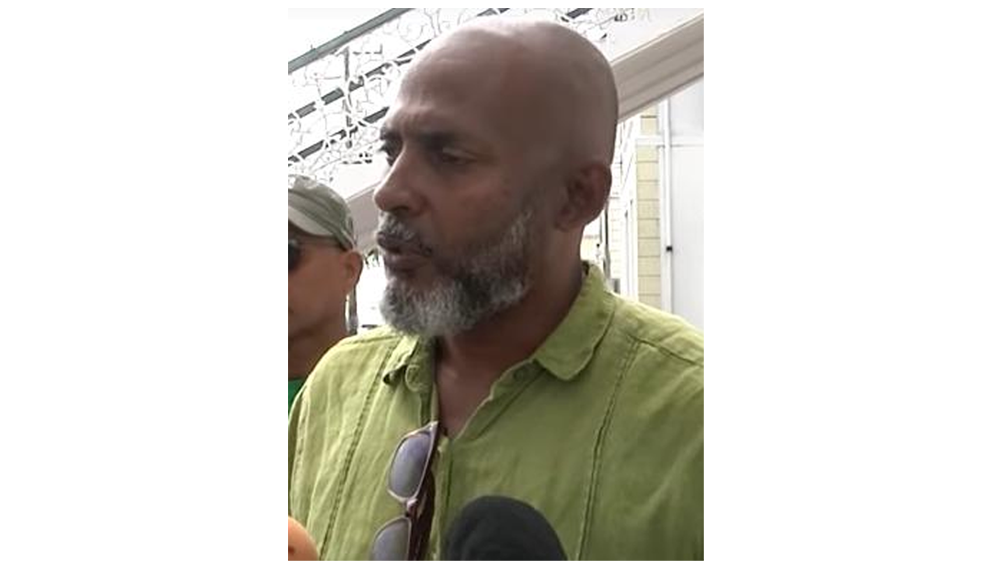Photo: Evan ‘Mose’ Hyde
BELIZE CITY, Thurs. Mar. 30, 2023
High Court Judge Genevieve Chabot had set aside three days for the trial in Port of Belize Ltd. (PBL)’s claim challenging the lawfulness of the stevedores’ January 2022 strike which lasted eight days. However, the attorneys for the defendants (the Christian Workers Union (CWU), its president Evan ‘Mose’ Hyde and five stevedores) filed submissions arguing that the Union has statutory immunity from a tort suit under Belize law and should not be held liable to pay damages. Therefore, the Court virtually heard legal arguments from both sides on that preliminary submission over the course of the morning today. Justice Chabot presided over the hearing from Canada while the defendants appeared in person in Court 5. If the defendants succeed, the case would come to an end by the end of May 2023 when Justice Chabot is set to make her ruling. Otherwise, the matter will go to full trial.
PBL argues that CWU and the other defendants can only claim statutory immunity if their strike had been lawful. One of PBL’s attorneys, Hector Guerra told Amandala that the defendants “unlawfully interfered with its ability to conduct business … when it engaged in industrial action.” The company originally sought damages totalling $1.034 million. Guerra says his client affirms that the strike was unlawful because the CWU had already referred the industrial dispute to the minister in charge of labour relations under the Settlement of Disputes in Essential Services Act, and the Minister had already engaged a tribunal to seek resolution. Since they were exhausting the remedy that the law creates, said Guerra, the “CWU were not proper when they engaged in industrial action.” He adds that the Union was actively taking part in the mechanism provided for under that law.
Darrell Bradley, who represents the president of the CWU and the five stevedores, says they do not accept they breached the law, but he did not go into those facts today saying what was being presented were legal arguments regarding the statutory immunity claim. In the case of the latter, he explained that due to public policy, there are certain circumstances that are immune to civil suits as per Section 34 of the Trade Union Act. Though there is a modernized act (Trade Unions and Employer’s Organizations (Registration, Recognition and Status) Act) under which the CWU is registered, Bradley made the point that the protection provided under the older Trade Union Act has not been expressly repealed by Parliament and therefore still applies. According to the Trade Union Act, says Bradley, tort claims shall not be entertained by any court, for to do so would be extreme because the strike was in furtherance of an industrial dispute. He affirmed that all strikes involve some degree of criminal and civil liability but to say that ALL actions would be actionable “undermines the entire regime of trade unionism and industrial relations. That means I could never strike because whenever I strike, whatever I do would be the subject of review …”
Bradley described this case as fundamental because Belize has signed on to international treaties that respect the right to strike. He asserted, if an employer can sue a union member just by virtue of them going on strike, “that undermines the right that you say exists … then you undermine my ability to effectively negotiate any collective dispute.”
At the end of today’s hearing, CWU president Hyde told Amandala the financial impact and stress of the case – running now about 14 months – has been significant. He expressed that a lot of their resources have been tied up in this effort, “but you know, this is such an important case, if you listen to it, the implications are broad for unionism in Belize; the implications are large for all unions in Belize.” The Union has been conducting dollar drives and holding other fundraising efforts and Hyde says they have received support from other unions.
Notably, PBL has twice reduced its claim. The latest figure cited in witness statements is now under $400,000. PBL attorney Guerra says the reduction is due to reconciliations that occurred internally. CWU attorney Darrell Bradley says PBL will have to provide proof of loss. His opinion, based on knowledge of maritime law, is that this claim should not have been brought in the first place taking into consideration that there should have been maritime insurance to cover losses from the strike. Bradley also considers the reduction odd noting that the latest figure seems to coincide with what remains in the CWU account from the $1.5 million ex gratia payment by Government to stevedores for any prejudices suffered due to the privatization of the Belize City port. That constitutional claim is set for trial in July.

